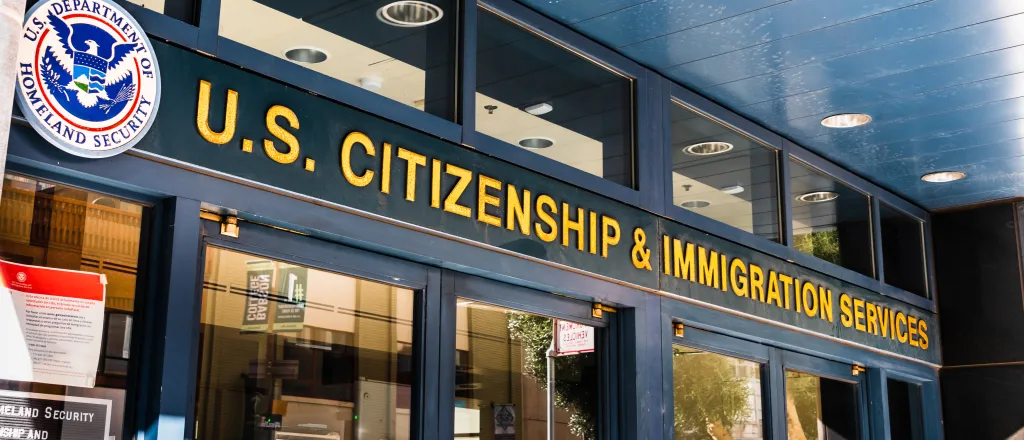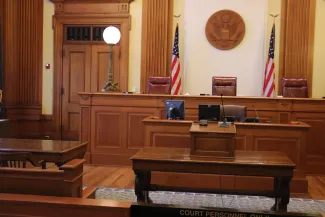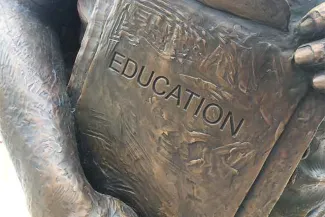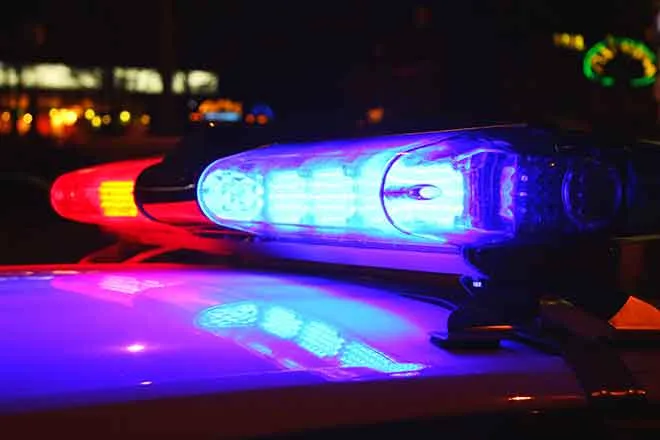
Colorado students sue Trump administration after legal status revoked
© Sundry Photography - iStock-1189510256
At least nine international students in Colorado have filed lawsuits against the Trump administration alleging due process violations when their legal status was revoked without an opportunity to defend themselves in immigration court.
The University of Colorado said in a statement that as of April 17 it is aware of 22 students who have had their visas revoked. A spokesperson for Colorado State University said Thursday that 16 of its students have been affected by revocations.
It is unclear how many of the students still remain in the country.

President Donald Trump issued an executive order targeting student visas of those who participated in pro-Palestinian protests on college campuses and another instructing the State Department to review visa programs to ensure no foreign nationals pose a threat to national security. Estimates say over 1,800 international students across the United States have had their visas revoked, though that number could be higher.
Raquel Lane-Arellano, a spokesperson for the Colorado Immigrant Rights Coalition, said the Trump administration’s decision to “target students for speaking up” is “really disturbing.” While many of the students in Colorado who have sued say they have not been politically engaged, some who have had their visas revoked have been.
“To see this administration so brazenly target them based on their use of their First Amendment right is a really scary step in the wrong direction,” Lane-Arellano said.
She said the visa revocations align with how she described the Trump administration’s broader goal of “silencing those who are speaking out against the human rights atrocities that they’re committing, whether that’s abroad or here at home.”
Universities in Colorado need to “stand by their students” and do everything in their power to protect international students being targeted, and support them in efforts to reinstate their visas, Lane-Arellano said. She said universities need to show that their values around “information access and free speech” are more important to them than any funding being threatened by the Trump administration.
Trump has used the threat of withheld federal funds to coerce universities to bend to his policy preferences.
Speaking their minds
Ella Smith, a third-year student at CSU Fort Collins who organizes with Students for Justice in Palestine, said they know at least one CSU student lost their visa for attending protests in support of Palestinian people. They said while police are present at the protests their organization holds, no students have had any formal interactions with law enforcement.

© flickrcc - Alan Levine
Smith said they are “appalled” and “disgusted” to see tuition-paying students who are in the country legally attacked for speaking their minds. International students and immigrant students are terrified and exhausted, they said. They said at least six of the CSU students who have had their visas revoked have already left the country.
“The international community has been seeing lots and lots of … attacks on not only their character, but on their rights, and as people who are here in America, they deserve the same protections as any American citizen, including protections under the First Amendment for speech and for protest,” Smith said.
Smith said it appears the university has been “scrambling” in recent weeks since visa revocations started in determining how to best help affected students. Student organizations like SJP are trying to get whatever information they can to help other international students, Smith said, but everyone is relying on limited information.
“What we think is that the university thought that they would see this in different places across the country before they saw it in Colorado — for example, seeing it in New York, in California at the Ivy League schools before it approached Colorado,” Smith said.
From the Middle East and Southeast Asia
All nine students who filed lawsuits in Colorado are referred to as “Student Doe” in their cases filed in the U.S. District Court of Colorado “due to fear of retaliation by Defendants for asserting their rights through this lawsuit, and of harassment or blacklisting by third parties.”
The students’ records were deleted from the Student and Exchange Visitor Information System, a government database that tracks international students’ compliance with their F-1 visas, which are granted to nonimmigrant international students. The complaints say terminating a record within the database “effectively ends F-1 student status” and that U.S. Immigration and Customs Enforcement does not have the authority to end that status even if a visa is revoked, which the complaints allege the agency did.
Zachary New, an Aurora attorney representing the nine students, said a visa is a document the State Department oversees, and it determines whether someone is permitted entry into the country. Once they are in the country, the Department of Homeland Security oversees their immigration status. New said there is not a method to challenge the revocation of a visa, which is a travel document, in court, but the plaintiffs are instead challenging the termination of their legal status.

© iStock - CarlosAndreSantos
The students New is working with are from countries in the Middle East and Southeast Asia, which he said is consistent with students being targeted across the country. The Colorado cases are being litigated individually, and the students all remain within the U.S.
Newsline reviewed three lawsuits that were filed last week, but access to others that were filed more recently was blocked by the court.
Defendants in the suits include the U.S. Department of Homeland Security, Secretary of Homeland Security Kristi Noem, and Acting Director of U.S. Immigration and Customs Enforcement Todd Lyons.
I can't think of anything more disempowering to a young student learning about the world than to be put in removal proceedings or taken out of their ability to be here because they engaged in one of the most sacred constitutional rights we have, which is the right to speak out about things.
ICE said in a statement that it does not comment on pending litigation. In a statement, a senior DHS official said ICE’s Homeland Security Investigations “conducts regular reviews” of the SEVIS database “to ensure visa holders remain in compliance with program requirements.” The official shared a link detailing why SEVIS terminations may occur.
The lawsuits say the reason for the students’ removal from the SEVIS record is “Other – Individual identified in criminal records check and/or has had their VISA revoked.”
DHS said it will notify the State Department if a violation is identified, as the department has the authority to determine visa revocation “and may consider criminal arrests and other national security concerns.” The statement said individuals who remain in the U.S. without legal status “may be subject to arrest and removal” and that “the safest and most efficient option is self-deportation.” DHS declined to comment on the specifics of the Colorado students’ cases “due to privacy concerns and visa confidentiality.”
‘The Constitution still matters’
New said he has “never seen something this blatantly illegal happen before” in his time in immigration law. He said he worked on many lawsuits during Trump’s first term, but he’s never seen something “so black and white” before.
“It suggests to me that the goal of this action wasn’t necessarily to follow the law as it’s written, it was to get this end result to have this psychological impact on students even where there is not really a leg to stand on in a federal court if a student wants to challenge it,” New said.
Universities and students have found out about their visa revocations by proactively checking the SEVIS database. None of the schools involved received any warning or explanation regarding the plaintiff students’ SEVIS records being terminated.

The lawsuits allege violation of the Administrative Procedures Act, the Fifth Amendment and the Declaratory Judgement Act when ICE — which operates under DHS — terminated the students’ SEVIS records. They ask the court to declare DHS’s actions unlawful, vacate DHS’s termination of the students’ SEVIS records and order that the department reinstate SEVIS records and F-1 student visa status. They also ask the court to order the defendants to pay the plaintiffs’ attorneys fees.
A Colorado Springs student’s complaint says they “have not engaged in any significant political activity.” The only criminal history the student has is for possession of alcohol and marijuana as a minor. The student received a new visa approved by the State Department and the DHS after that charge.
A Denver student’s complaint says their criminal history includes a low fine paid for running a red light resulting in a crash, and a petty larceny offense charge that was dropped.
A Fort Collins student’s complaint also says they have not engaged in significant political activity. Their criminal history includes a driving under the influence and drunk driving charge in California, which was ultimately dismissed. The student pleaded no contest to a misdemeanor count and completed a court-ordered three-month DUI program while serving 12 months of summary probation.
New said the other students have similarly low-level infractions, none of which include convictions for violent crimes. One student was arrested but never had charges filed against them, he said.
When he first started working in immigration law, New said he was told it was “the trenches of the Constitution,” as immigration is where the boundaries of the Constitution “are really pushed.” These students have not had the opportunity to be heard in regards to action the government is taking against them, he said.
“In the end, the Constitution still matters. Due process still matters. Procedure still matters,” New said. “In some ways, protecting individuals who are most vulnerable to these Constitutional violations is protecting everybody from having their Constitutional rights eroded.”
The cases are all in early phases since lawsuits were filed in the last week, and New said more actions should be expected in those cases in the coming weeks.
Lane-Arellano said the Trump administration’s actions targeting international students will make prospective students wishing to study in the U.S. second guess whether that is the right choice for them.
“I can’t think of anything more disempowering to a young student learning about the world than to be put in removal proceedings or taken out of their ability to be here because they engaged in one of the most sacred constitutional rights we have, which is the right to speak out about things,” Lane-Arellano said.
















